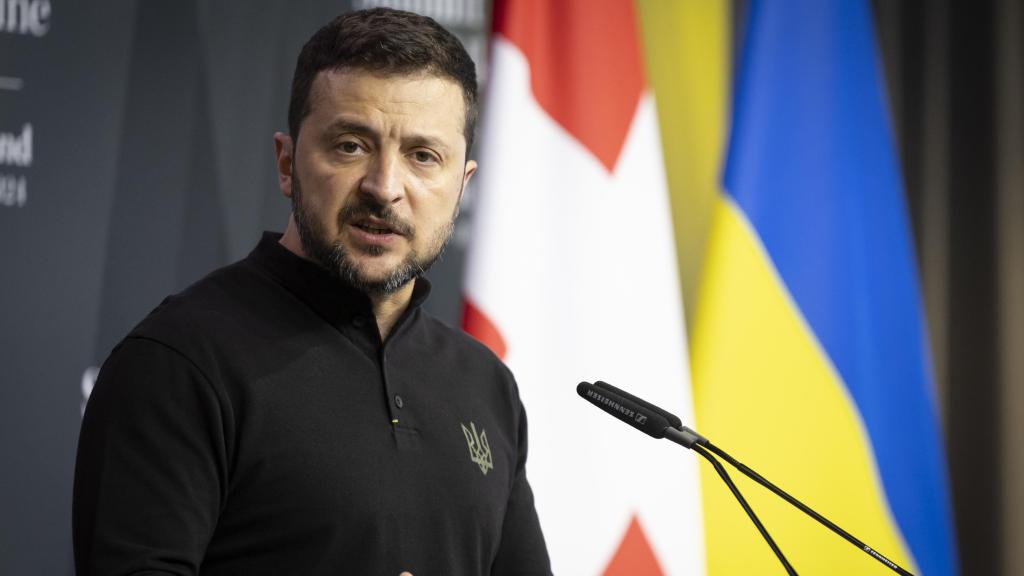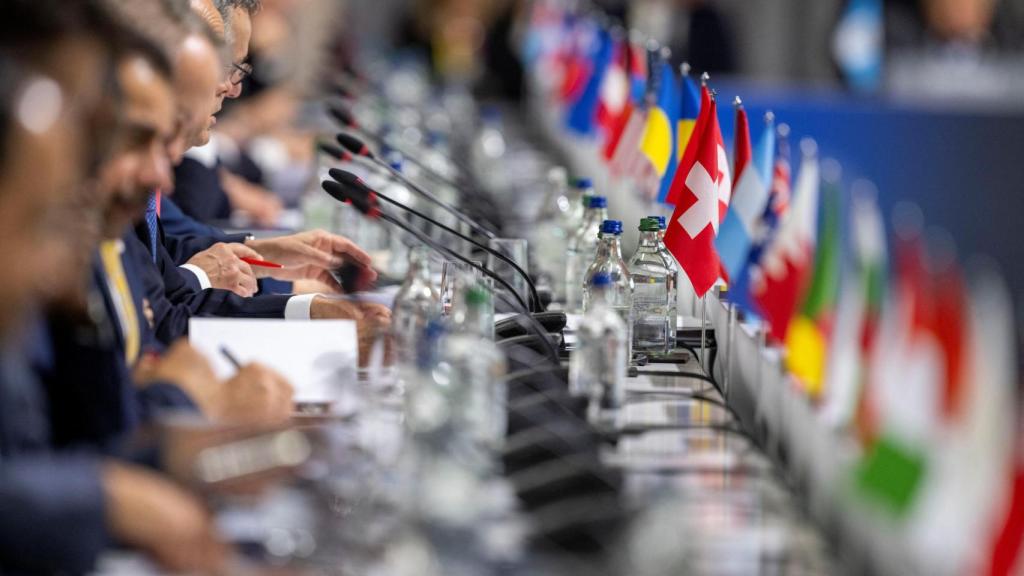The leaders gathered at the Peace Summit on Ukraine held in Bürgenstock (Switzerland) signed the joint statement this Sunday. The document states that the territorial integrity of Ukraine must be the priority to achieve peace. This statement comes from an event organized by Ukrainian President Volodymyr Zelensky with the aim of increasing diplomatic pressure on Vladimir Putin and strengthening international support for his vision to end the war.
The notice has been supported by 80 of the attending countries to the Summit, among them the countries of the European Union – including Spain -, Turkey and the United States, thus rejecting Putin’s proposal from last Friday. However, There are 12 countries that have rejected the document: India, South Africa, Mexico, Armenia, Bahrain, Indonesia, Libya, Saudi Arabia, Thailand, the United Arab Emirates and Brazil – as an observer –.
From the Kremlin, spokesman Dmitry Peskov addressed Zelensky urging him to think about the Russian leader’s peace proposal in the face of the worsening military situation in kyiv. “Zelensky came to power under the banner of peace and with the intention of establishing peace, of saving Ukraine. He always said that he was ready to do anything for the good of Ukraine. For the good of his country, Let’s see if he is willing to do something to not make the situation even worse.“Peskov challenged in an interview collected by TASS.
Heads of state pose for a group photo during the Ukraine Peace Summit in Stansstad, near Lucerne, Switzerland, Saturday, June 15, 2024. Heads of state from around the world gather at the Buergenstock Resort in Central Switzerland for Ukraine Peace Summit on June 15-16
REUTERS
Swiss
Twelve countries have refused to sign. After the refusal there could be a conflict of interest geopolitical or economic, that stop them from openly positioning themselves against Russia. These countries would not be willing to jeopardize or destroy their commercial and strategic relations with Moscow.
On the other hand, the lack of consensus in the final declaration may also be due to the fact that some consider that both Ukraine and Russia must make concessions to achieve peace. Mexico, Saudi Arabia and India, among others, see the resolution of the conflict from a more neutral and balanced point of view: they consider that both parties must commit to reaching a peaceful solution.
A range of reasons
Among the non-signatory countries, those that are not the ‘biggest supporters of Ukraine’ stand out. Among them, Saudi Arabiawhose Foreign Minister warned that the Ukrainian government would have to do “difficult trade-offs“; and Kenyathat opposed recent sanctions imposed on Russia. Despite the refusal of the Saudi country, the president of Ukraine ‘does not give up’ and sees it as one of the candidates to host a ‘return’ of negotiations.
For their part, the representatives of Mexico defended that “a lasting peace in Ukraine will only be possible through an authentic dialogue between the parties to the conflict. We reiterate the validity of the principle of peaceful settlement of disputes” and stressed that “any threat or use of nuclear weapons is inadmissible by either party“.

Ukrainian President Volodymyr Zelensky delivers a press statement during the Ukraine Peace Summit in Stansstad, near Lucerne, Switzerland, on June 15, 2024.
EFE/EPA
Swiss
In the case of India, whose president Narenda Modi met with Zelensky on the sidelines of the G7 summit on Friday, they issued a statement in which they asserted that: “India’s participation in the Summit […] was in line with our consistent approach to facilitating a lasting and peaceful resolution of the conflict through dialogue and diplomacy. We continue to believe that such a resolution requires a sincere and practical commitment between the two parties in the conflict“, reported national agencies.
Thus, the fact that 12 countries have not signed at this Summit reflects the complexity of the situation in Ukraine and the difficulty of achieving an international consensus around this conflict, which represents a challenge for ‘the second round’ that Zelensky wants to carry out in the coming months.

Summit on Peace in Ukraine, in Switzerland.
Reuters
“Beyond Bürgenstock”
Swiss President and host Viola Amherd posted on X (and in her final statement) that “despite our different points of view, we have managed to agree on a common vision. We have set out that vision in the Bürgenstock Communiqué.”
“I am sure that we will commit to this process beyond Bürgenstockknowing that the road ahead is long and challenging,” continued the Swiss president.
In the text derived from the Summit, the signatories demand a path to peace based on international law and the Charter of the United Nations and express their support for the territorial integrity of Ukraine.
Furthermore, the commitment not to use force against the territorial integrity of any State, including Ukraine, has been reaffirmed. In this sense, the importance of the security of Ukrainian nuclear plants, global food security and the release of prisoners of war has also been agreed. All this in order to “continue working together” to achieve comprehensive peacefair and lasting in Ukraine based on dialogue and cooperation.
Russia, defiant
Kremlin spokesman Dmitry Peskov stressed that “every time Putin expresses peace initiatives and when you try to enter the political and diplomatic channel, There are certain conditions that harm Ukraine“.
Peskov lamented that “the current dynamics of the situation on the fronts clearly shows us that the situation will continue to worsen for Ukrainians. “Let’s see what happens,” the Kremlin official threatened.
Peskov noted that negotiations with Ukraine are possible, but its result must be approved by the legitimate Ukrainian authorities, a group that does not include Zelensky. “He is not the person with whom a written agreement can be registered, it would be illegitimate,” he said.
However, Putin does not reject anything.















Add Comment